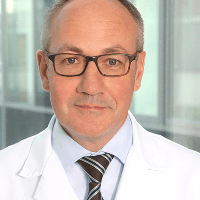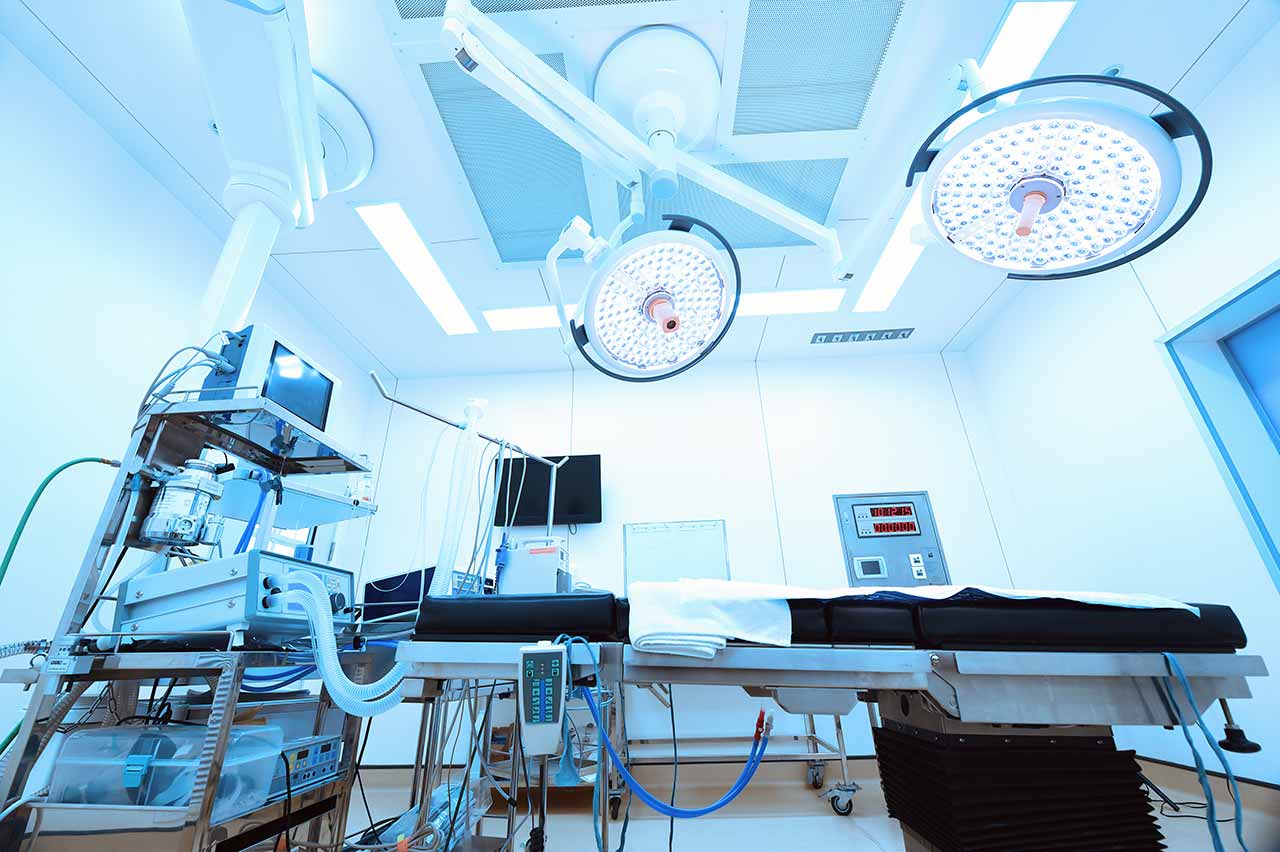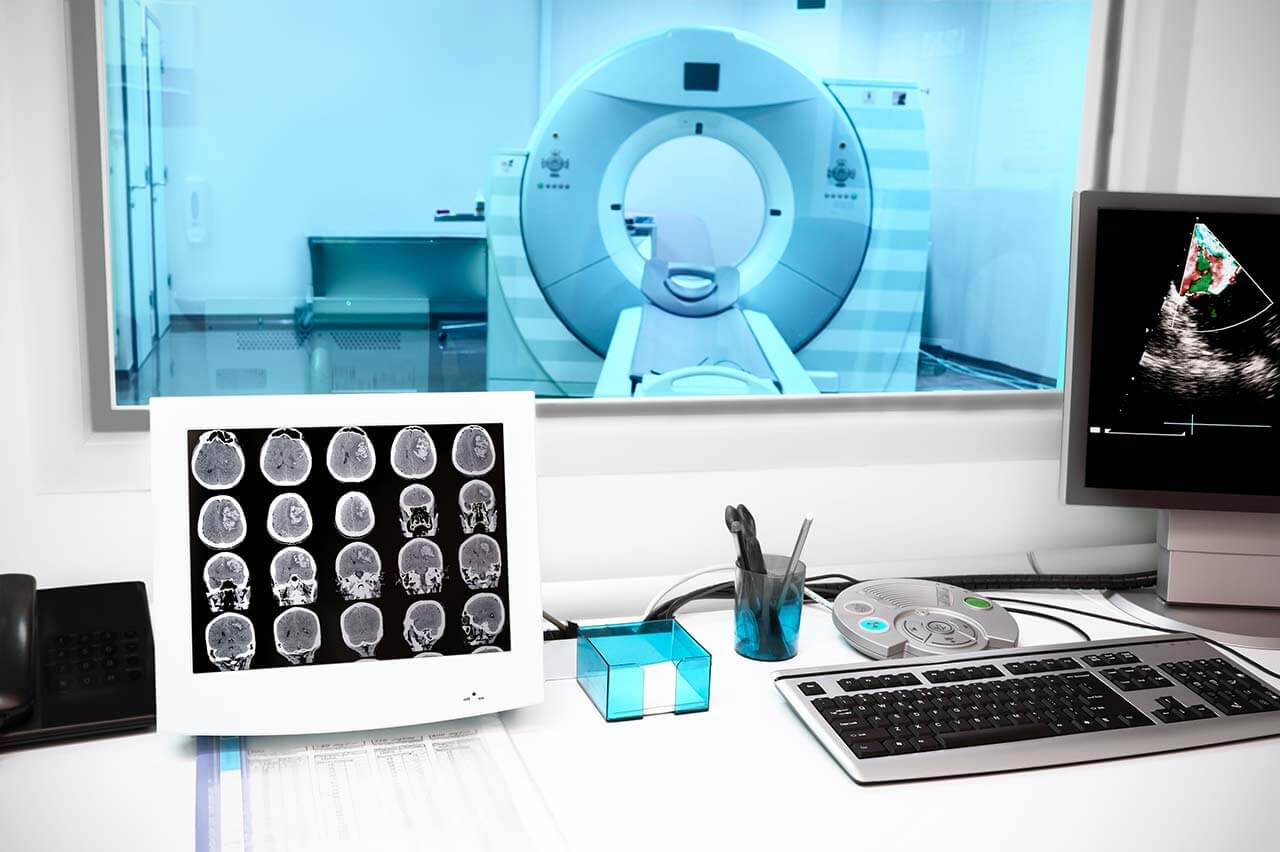
The program includes:
- Initial presentation in the clinic
- case history collection
- general clinical examination
- urological examination
- laboratory tests:
- complete blood count
- general urine analysis
- biochemical analysis of blood
- TSH-basal, fT3, fT4
- tumor markers
- indicators of inflammation
- indicators of blood coagulation
- pelvic ultrasound scan
- CT/MRI scans (if indicated)
- chemotherapy, cost of medicines is included
- radiation therapy (full course)
- symptomatic treatment
- nursing services
- cost of essential medicines and materials
- consultations of leading experts
- explanation of individual treatment plan
How program is carried out
During the first visit, the doctor will conduct a clinical examination and go through the results of previous laboratory tests and instrumental examinations. After that, you will undergo an additional examination, including complete blood count, laboratory assessment of liver and kidney function. Based on the received results, the physician will elaborate the chemotherapy regimen, conduct radiotherapy planning with the help of CT or MRI, make the permanent tattoo marks on the skin and conduct CT simulation in order to assess the accuracy of the rays and the radiation dose. If necessary, related medical specialists will be involved in the elaboration of a treatment regimen (tumor board).
Chemotherapy and radiation therapy are carried out as the day hospital procedure, without mandatory admission to the hospital. At each visit, the physician will assess your general condition and the marks on the skin. After that, you will be placed in a shielded radiation therapy room, on a special table.
Each radiation therapy session lasts less than half an hour (including preparation). All this time, doctors and nurses are monitoring your condition, you can communicate with them through a loudspeaker. The procedure is completely painless. Depending on the planned course of treatment, you will visit the hospital from 1 to 3-5 times a week.
During the chemotherapy session, after the placement of a venous catheter, you will stay in a comfortable ward. An infusion system will be connected to the catheter, through which the required drug or a drug combination will be administered. All drugs are administered by intravenous drip, slowly, so the total duration of the infusion can be up to several hours. All this time, doctors and nurses will monitor your health condition closely.
After the completion of the chemotherapy and radiation therapy course, you will undergo control examinations aimed at assessing your condition and efficacy of treatment. After that you will receive the medical report with detailed recommendations regarding further follow-up and treatment. In the future, you will be able to have a distant consultation with your attending physician and schedule the next course of treatment, if necessary.
Required documents
- Medical records
- MRI/CT scan of the abdomen and pelvis (not older than 3 months)
- Biopsy results (if available)
Service
You may also book:
 BookingHealth Price from:
BookingHealth Price from:
About the department
The Department of Gastroenterology, Hepatology, Oncology, Cardiology, Pulmonology at the Hospital zum Heiligen Geist Frankfurt am Main offers the full range of preventive, diagnostic and therapeutic services in the fields of its competence. The department's medical team specializes in the treatment of diseases of the gastrointestinal tract, liver and biliary tract, cardiovascular system, lungs and respiratory tract. It also admits patients with cancer of the internal organs. The department provides medical care to more than 4,500 patients every year. Highly qualified doctors work with patients, for whom the patient and his health are in the first place. The department has modern diagnostic rooms for ultrasound scanning, endoscopic examinations, pulmonary function tests and other examinations. The therapeutic protocols include highly effective drug treatment regimens and modern interventional endoscopic procedures. The treatment tactics are determined depending on the particular diagnosis, the stage of the disease, the general health condition of the patient, his age and other important factors. The Head Physician of the department is Prof. Dr. med. Rainer Duchmann.
The department's team of gastroenterologists deals with the treatment of stomach, esophageal, pancreatic, small and large intestine diseases. It provides effective treatment of gastroesophageal reflux disease, gastric and intestine ulcers, infectious diseases of the gastrointestinal tract, gastrointestinal bleeding, diverticular disease, stomach and colon polyps, as well as digestive cancers. The department's specialists have advanced equipment for diagnosing the digestive system in order to detect pathological changes. First of all, the attending physician carries out a clinical examination, asks the patient about his complaints, and then determines the complex of necessary diagnostic tests: laboratory tests, ultrasound scanning, endoscopic diagnostic procedures, including esophagogastroduodenoscopy, gastroscopy, colonoscopy, sigmoidoscopy, rectoscopy and capsule endoscopy. After studying the diagnostic results, the specialist makes an accurate diagnosis. Depending on the severity of the pathology and its stage, drug therapy, endoscopic procedures, surgery, or a combination of several therapeutic methods may be required. The department's gastroenterologists often use only drug therapy, but also have vast experience in therapeutic endoscopic procedures, such as polypectomy, endoscopic submucosal dissection, hemostasis, balloon dilation, etc. In complex clinical cases, laparoscopic or open surgery may be required. In such cases, abdominal surgeons are involved in the therapeutic process.
The department's doctors also deal with the treatment of liver, gallbladder and biliary tract diseases. The patients with acute and chronic inflammatory liver diseases, cirrhosis, benign and malignant liver neoplasms are in the focus of attention of doctors. To treat liver pathologies, the very latest medications are used. If clinically indicated, such endoscopic treatment as endoscopic retrograde cholangiopancreatography to remove stones from the bile ducts can also be performed.
The patients suffering from cancer of various localizations receive medical care in the department. Should cancer diagnosis be confirmed after comprehensive examination, the highly specialized doctors gather for a tumor board to study clinical data and develop an optimal treatment regimen. The department's doctors have in their arsenal various conservative methods: chemotherapy, immunotherapy, antibody therapy, bisphosphonate therapy. If tumors of the gastrointestinal tract and lungs are detected in the patient in the early stage, they can be removed using endoscopic techniques, so that the patient will be able to avoid a traumatic surgical intervention.
An important focus of the work of the medical facility is on the diagnostics and treatment of cardiovascular diseases. The patients with myocardial infarction, heart failure, arrhythmias and hypertension most often receive medical care here. The department houses a certified Chest Pain Unit, which provides acute coronary syndrome treatment. The department offers excellent diagnostic tests: electrocardiography, echocardiography and stress echocardiography, 24-hour blood pressure monitoring, spiroergometry, pulmonary function tests, cardiac computed tomography. There is also a modern laboratory for cardiac catheterization, whose specialists conduct catheter-based examinations and treatment of cardiovascular pathologies. The laboratory often performs stent implantation for coronary artery stenosis, rotablation, left atrial appendage occluder placement, cardiac resynchronization therapy, and other therapeutic manipulations. Thus, many specialists working in the department restore the heart function without resorting to extensive surgical interventions with thoracotomy.
The department also has a team of pulmonologists, who examine the respiratory system and carry out the treatment of a wide range of lung and respiratory diseases. Of particular interest is the treatment of chronic respiratory diseases and malignant lung tumors. At the diagnostic stage, most patients are prescribed laboratory tests, ultrasound scanning and bronchoscopy. The therapeutic options include drug therapy and endoscopic procedures. The treatment regimen is developed for each patient individually, based on the specific clinical situation.
The department specializes in the treatment of the following diseases:
- Gastrointestinal diseases
- Gastric and intestinal ulcers
- Gastroesophageal reflux disease
- Infectious gastrointestinal diseases
- Inflammatory bowel disease (Crohn's disease and ulcerative colitis)
- Diverticular disease
- Stomach and colon polyps
- Gastrointestinal bleeding
- Benign and malignant gastrointestinal tumors
- Liver, gallbladder and biliary tract diseases
- Acute and chronic inflammatory liver diseases
- Cirrhosis
- Benign and malignant liver tumors
- Cholecystitis
- Gallstone disease
- Oncological diseases
- Stomach cancer
- Colon cancer
- Esophageal cancer
- Liver cancer
- Gallbladder cancer
- Lung cancer
- Pleural mesothelioma
- Thymoma
- Cardiovascular diseases
- Myocardial infarction
- Heart failure
- Heart rhythm disorders (arrhythmias)
- Arterial hypertension
- Lung and respiratory tract diseases
- Obstructive pulmonary disease: bronchial asthma, chronic obstructive pulmonary disease
- Pneumonia
- Rare interstitial lung diseases
- Oncological diseases of the lungs: lung cancer, thymoma, pleural mesothelioma, lung metastases
- Other diseases
The department's range of medical services includes:
- Gastroenterology and hepatology
- Diagnostic procedures
- Endosonography
- Esophagogastroduodenoscopy
- Gastroscopy
- Colonoscopy
- Proctoscopy
- Sigmoidoscopy
- Capsule endoscopy of the small and large intestine
- Endoscopic retrograde cholangiopancreatography
- Hydrogen breath tests (lactose, lactulose, glucose, fructose)
- pH-metry
- Anorectal manometry
- Esophageal manometry
- Therapeutic procedures
- Polypectomy
- Mucosectomy
- Stent implantation
- Balloon dilatation
- Bougienage
- Argon plasma coagulation
- Percutaneous transhepatic cholangiography
- Endoscopic retrograde cholangiopancreatography
- Hemostasis with drug injection, clipping, ligation, argon plasma coagulation
- Diagnostic procedures
- Oncology
- Therapeutic procedures
- Chemotherapy
- Immunotherapy
- Antibody therapy
- Bisphosphonate therapy
- Endoscopic removal of malignant tumors in the early stages
- Therapeutic procedures
- Cardiology
- Diagnostic procedures
- Echocardiography
- Electrocardiography
- 24-hour blood pressure monitoring
- Pulmonary function tests
- Spiroergometry
- Event recorder placement for diagnosing syncope
- Diagnostic cardiac catheterization
- Therapeutic procedures
- Coronary artery stent placement
- Rotablation
- Left atrial appendage occluder implantation
- Cardiac resynchronization therapy
- Pacemaker and defibrillator implantation
- Diagnostic procedures
- Pulmonology
- Diagnostic procedures
- Endobronchial ultrasound scanning
- Tumor biopsy
- Mediastinal lymph node biopsy
- Flexible and rigid bronchoscopy
- Therapeutic procedures
- Bronchoalveolar lavage
- Stent implantation
- Recanalization for obstruction due to tumor growth
- Diagnostic procedures
- Other medical services
Curriculum vitae
University Education and Professional Career
- Since June 2012 Medical Director of the Hospital zum Heiligen Geist Frankfurt am Main.
- Since 2007 Head Physician of the Department of Gastroenterology, Hepatology, Oncology, Cardiology, Pulmonology at the Hospital zum Heiligen Geist Frankfurt am Main.
- 2005 - 2007 Managing Senior Physician, Department of Internal Medicine I, Charite University Hospital Berlin.
- 2004 - 2005 Managing Senior Physician, Department of Emergency Medical Care, Charite University Hospital Berlin.
- 2002 - 2004 Managing Senior Physician, Department of Internal Medicine (focus on the treatment of gastrointestinal diseases), Charite University Hospital Berlin.
- 2001 - 2007 Senior Physician, Department of Internal Medicine I, Charite University Hospital Berlin.
- 1998 - 2000 Senior Physician, Department of Internal Medicine II, University Hospital Saarland Homburg.
- 1992 - 1997 Preparation for board certification, Department of Internal Medicine I, University Hospital Mainz.
- 1990 - 1992 Research Fellow, German Research Foundation, Mucosal Immunology Laboratory, National Institute of Allergy and Infectious Diseases (NIAID), National Institutes of Health, Bethesda, USA.
- 1989 - 1990 Internship, Department of Internal Medicine I, University Hospital Mainz.
- 1982 - 1988 Study of Human Medicine, University Hospital Frankfurt am Main.
Qualifications and Certificates
- 2011 Inflammatory Bowel Disease Certificate, German Society for Gastroenterology, Digestive and Metabolic Diseases (DGVS).
- 2007 Additional qualification in Rheumatology.
- 2007 Certified Immunologist, German Society of Immunology (DGfI).
- 2007 Additional qualification in Diabetology.
- 2007 Additional qualification in X-ray Diagnostics.
- 2006 Fellow of the European Board of Gastroenterology (FEBG).
- 2006 Gastrointestinal Cancer Certificate, German Society for Gastroenterology, Digestive and Metabolic Diseases (DGVS).
- 2006 Additional qualification in Laboratory Diagnostics, Internal Medicine.
- 2000 Specialization in Gastroenterology.
- 2000 Theoretical foundations of the specialty in Abdominal Radiation Protection.
- 2000 Theoretical foundations of the specialty in Laboratory Diagnostics in Internal Medicine.
- 1998 Theoretical foundations of the specialty in Colonoscopy (sigmoid colon).
- 1997 Board certification in Internal Medicine.
- 1990 Admission to medical practice.
- 1989 American State Examinations: Educational Commission for Foreign Medical Graduates (Part I+II).
Academic Career
- 2003 - 2007 Scientific Secretary, Collaborative Research Center (SFB) 633: "Induction and modulation of T cell mediated immune responses in the gastrointestinal tract".
- 2003 Extraordinary Professorship, Charite University Hospital Berlin.
- 2002 - 2007 Executive Committee Member of the European Mucosal Immunology Group.
- 1998 Habilitation, Faculty of Medicine, Johannes Gutenberg University Mainz. Subject: "The role of intestinal flora antigens in the pathogenesis of inflammatory bowel disease: antigenic specificity and reactivity of intestinal T lymphocytes".
- 1998 Chairman of the German Working Group for Chronic Inflammatory Bowel Disease (DACED).
- 1996 1st Research Prize of the German Crohn's Disease and Colitis Association (DCCV).
- 1990 - 1992 Study Grant of the German Research Foundation, Dr. Strober's Laboratory, Section for Mucosal Immunity, National Institute of Allergy and Infectious Diseases, Bethesda, Maryland, USA.
- 1990 Thesis defense, University Hospital Frankfurt am Main. Subject: "Research on determination of the production of interleukin-2 and the expression of interleukin-2 and transferrin receptors in HIV infected children".
Photo of the doctor: (c) Hospital zum Heiligen Geist
About hospital
The Hospital zum Heiligen Geist Frankfurt am Main is a modern medical facility offering top-class service. The medical complex is an academic hospital of the Goethe University Frankfurt, so doctors pay due attention to research activities, and also have a perfect command of the very latest diagnostic and therapeutic techniques. The hospital has state-of-the-art equipment, comfortable diagnostic and treatment rooms, as well as cutting-edge operating rooms. The medical facility provides treatment to more than 10,844 inpatients and about 14,582 outpatients every year. In addition, more than 1,157 babies are born in the hospital annually. The medical complex is highly reputable in the region and throughout the country.
The hospital has specialized departments responsible for the treatment of diseases of the gastrointestinal tract and liver, respiratory diseases, diseases of the cardiovascular system, musculoskeletal system and pathologies of the female reproductive organs. The health of patients is in the safe hands of highly professional doctors who have a perfect command of all modern treatment methods in their field of competence. The specialists pay special attention to an individual approach to each clinical case, which allows them to achieve excellent therapeutic results.
Medical care at the hospital is awarded by prestigious quality certificates, including the EndoCert certificate of the German Society for Orthopedics and Orthopedic Surgery (DGOOC), the certificate of the German Hernia Society (DHG), the certificate of the German Cardiac Society (DGK). In addition, the hospital has DIN EN ISO 9001:2015 quality management system, which ensures the control of the work of medical staff, the quality of services provided and assess satisfaction of patients upon the completion of treatment. The hospital also regularly undergoes an assessment of the quality of medical services by specialized state authorities, which publish the results of inspections in the public domain.
The doctors working in the hospital always strive to carry out accurate diagnostics and effective treatment using modern sparing techniques. At the same time, the patient and the humane attitude towards him and his needs are in the focus of attention. The hospital offers a pleasant and friendly atmosphere, in which the patient feels as comfortable as possible and can fully concentrate on restoring his health.
Photo: (с) depositphotos
Accommodation in hospital
Patients rooms
The patients of the Hospital zum Heiligen Geist Frankfurt am Main live in modern and cozy rooms with pastel colors. The standard room furnishings include an automatically adjustable bed, bedside table, wardrobe, table and chairs, telephone and TV. The bed is equipped with a nurse call system. Each patient room has an ensuite bathroom with shower and toilet. The hospital has rooms in which the bathroom is specially equipped for disabled people. The hospital has Wi-Fi access.
If desired, the patient can stay in the enhanced comfort room. Such rooms are additionally equipped with a safe for storing valuables, a mini-fridge and upholstered furniture.
Meals and Menus
The patients of the hospital are offered tasty and healthy three meals a day: breakfast, lunch and dinner. The menu includes standard and dietary dishes, vegetarian dishes and pork-free dishes for Muslims. Coolers with drinking water are available in the corridors and patient rooms.
If for some reason you do not eat all the foods, you will be offered an individual menu. Please inform the medical staff about your food preferences prior to treatment.
Further details
Standard rooms include:
Religion
Religious services are available upon request.
Accompanying person
Your accompanying person may stay with you in your patient room or at the hotel of your choice during the inpatient program.
Hotel
You may stay at the hotel of your choice during the outpatient program. Our managers will support you for selecting the best option.




